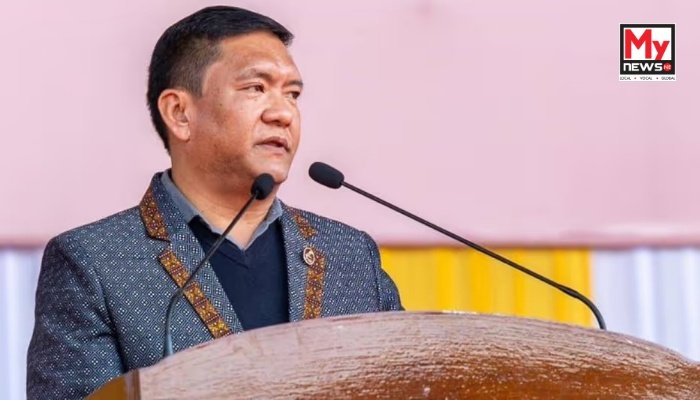We Share a Border with Tibet, Not China: Arunachal CM Pema Khandu Sparks Debate on Geopolitical Narrative
Itanagar: Arunachal Pradesh Chief Minister Pema Khandu has stirred a fresh debate over India’s border terminology, asserting that the northeastern state shares a boundary with Tibet, not China. Speaking to PTI, Khandu stated that the 1,200 km international border in Arunachal Pradesh is historically and geographically shared with Tibet, which was later occupied by China in the 1950s.
“Let me correct you here. We share a border with Tibet and not China,” Khandu clarified when asked about Arunachal’s boundary with China. He acknowledged that Tibet is currently under Chinese control, but maintained that originally and culturally, the region’s frontier has always been with Tibet.
Khandu’s remarks come amid renewed sensitivities surrounding China’s assertive claims over Arunachal Pradesh and its continued attempts to rename locations within the state. Beijing considers Arunachal a part of South Tibet, a claim firmly rejected by New Delhi, which regards the state as an integral part of India.
Elaborating further, Khandu emphasized the geopolitical complexity of the region. “In Arunachal Pradesh, we share three international borders — with Bhutan (around 150 km), Tibet (approximately 1,200 km, one of the longest in India), and Myanmar (about 550 km). No Indian state shares a direct border with China. Only with Tibet,” he reiterated.
Citing historical context, the Chief Minister referred to the 1914 Shimla Convention, in which representatives of British India, China, and Tibet negotiated boundaries. He underscored that the document reinforces the Indo-Tibet frontier status of Arunachal’s northern boundary.
Khandu also downplayed China’s recurring attempts to rename locations in Arunachal Pradesh. “This is not the first time they’ve done it. If I’m not mistaken, this was their fifth attempt. We’re not surprised anymore,” he said, adding that the Ministry of External Affairs (MEA) has consistently given China a fitting diplomatic response.
His remarks, while rooted in historical facts, are likely to invite scrutiny and stir strategic discussions within India’s foreign policy and defense circles. They come at a time when border tensions between India and China remain unresolved in various sectors of the Line of Actual Control (LAC).
Khandu’s statement appears to be a subtle pushback against China’s narrative, reinforcing India’s historical and cultural ties with Tibet while questioning the legitimacy of Beijing’s territorial claims. As the debate over the Indo-China border persists, the Arunachal Chief Minister’s words serve as a reminder of the region’s forgotten geopolitical history — one that predates modern diplomatic boundaries.
Read More: Former Arunachal MLA Kapchen Rajkumar Killed in Tragic Elephant Attack in Tirap

